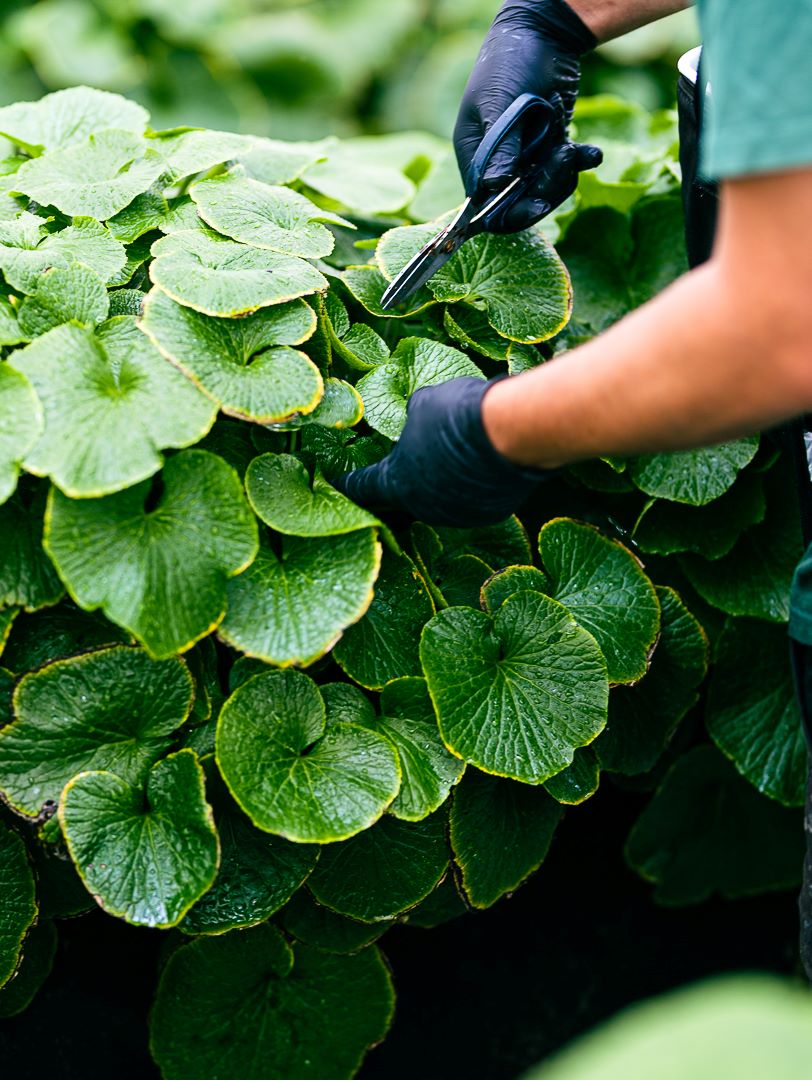Wasabi leaf as a new herbal tea/tisane

If you’re looking for a new herbal tea to add to your repertoire, consider trying wasabi leaf tea*. While the wasabi plant is typically associated with the spicy green condiment served with sushi, the leaves of the plant can be brewed into a refreshing and healthy tea. Here are some of the potential benefits of drinking wasabi leaf tea.
*Note the word “tea” is technically for a beverage made by brewing the Camellia sinsensis plant, of which black, green, oolong and white tea are from.
Boosts immunity
Wasabi leaf tea contains a variety of antioxidants, including vitamin C and carotenoids, which can help strengthen the immune system. These compounds can neutralize harmful free radicals in the body, reducing the risk of chronic diseases and improving overall health.
Reduces inflammation
Inflammation is a natural response of the body to injury or infection, but chronic inflammation can contribute to a range of health problems, from arthritis to heart disease. Wasabi leaf tea has anti-inflammatory properties, thanks to its high levels of polyphenols, which can help reduce inflammation and associated symptoms.
Contains no caffeine
Unlike all teas made from the Camellia sinensis plant, the wasabi leaf tea is naturally caffeine-free, making it a great choice for those looking for a warm beverage without the stimulating effects of caffeine. This also means it can be enjoyed at any time of day without disrupting sleep.
Aids digestion
Wasabi leaf tea has been traditionally used in Japan as a digestive aid. It contains enzymes that can help break down proteins and fats, making it easier for the body to digest food. Additionally, the tea’s anti-inflammatory properties can help soothe digestive issues like bloating and indigestion.
Supports respiratory health
The same compounds in wasabi leaf tea that can boost immunity and reduce inflammation may also help support respiratory health. Some research suggests that wasabi leaf extract may have anti-allergenic effects, making it a potential treatment for asthma and other respiratory conditions.
May improve cognitive function
One study found that the consumption of wasabi leaf extract improved cognitive function in mice, potentially due to its ability to reduce inflammation and oxidative stress in the brain. While more research is needed to confirm these results in humans, it’s possible that drinking wasabi leaf tea could have similar benefits.
While more research is needed to fully understand the health benefits of wasabi leaf tea, it’s clear that this flavorful tea has a lot of potential for promoting health and well-being.
To make yourself a cup of wasabi leaf tea, simply steep the 1-2 teaspoons of dried leaves in 250ml freshly brewed water for 4+ minutes. Adjust the volume of leaves according to the size of your cup or persons sharing the tea. Enjoy the brew plain or with a bit of honey or lemon to taste. Not recommended with milk.
Disclaimer. Information held within this article has not been verified with published scientific articles. Suitability for pregnant women is unknown. People with any medical conditions should seek the advice of a medical professional. Art of Tea is not responsible for any effects experienced by drinking wasabi leaf or any other of our branded products. We do however hope you enjoy the experience and feel nurtured and loved from our small tea-m at the Art of Tea in Tasmania.

Leave a Reply